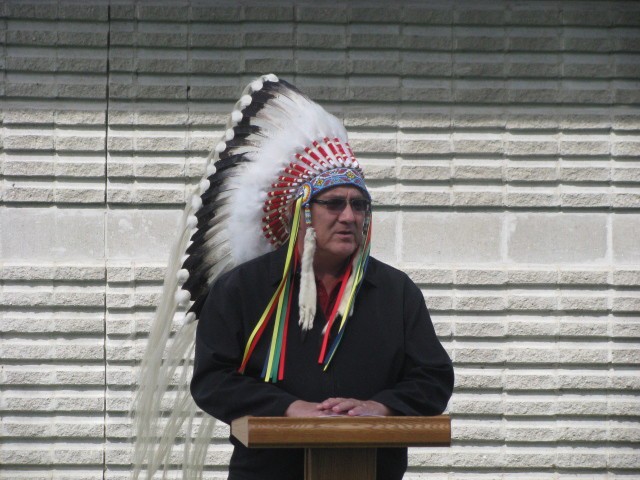Fisher River Cree Nation withdraws from the Southern Chiefs Organization
Chief concerned organization ignoring mandate
The Fisher River Cree Nation’s (FRCN) recent withdrawal from the Southern Chiefs Organization (SCO) has some wondering what members gain by belonging to multiple political advocacy groups.
David Crate, chief of the FRCN, notes that the SCO seems to be departing from its original mandate.
The SCO, created over 10 years ago, aims to promote and enhance First Nations peoples’ rights through the application of the intent of the Treaty making process.
“They (the SCO) are looking at creating more of a service delivery entity, and I always believed the organization was geared to provide political support to communities,” Crate said. “I don’t think the current Grand Chief has the ear of government at this point in time.”
One of the challenges, according to Crate, is that there is an overlap in what the SCO and the Assembly of Manitoba Chiefs (AMC) does.
“Basically they’re all going after the same funding dollar, and that can create problems,” he said.
Jacqueline Romanow, acting chair of the University of Winnipeg’s Aboriginal Governance program, agrees.
“When we’re dealing with a limited funding envelope for First Nations issues, we have to question these organizations,” Romanow said. “If members want advocacy and research, why couldn’t the AMC do that?”
“ The SCO’s mandate as set down by previous leadership is good ... There is a possibility in the future that if there is a change in terms of leadership, the Fisher River Cree Nation may consider joining again.
David Crate, Chief of the Fisher River Cree Nation
These organizations are costly to run, Romanow added, and apart from the SCO and AMC, there are also tribal councils that represent members’ political interests.
Romanow and Crate both caution that competition for funding between the different organizations divides resources that could be going towards health and education, two chronically underfunded areas in their views.
While the financial implications of FRCN’s decision may not be powerful nor felt immediately, according to Indian and Northern Affairs Canada (INAC) it is a reality.
“Withdrawal of a First Nation from a First Nation regional organization’s membership would impact its funding,” said Ellen Funk, communications manager with INAC. “It wouldn’t be anticipated to have a significant impact (on the organization), and it would not have an effect until the next fiscal year, 2011-2012.”
Both Crate and Romanow acknowledge that political advocacy groups can help First Nations work with the government on issues like autonomy.
“We need to create a common front to move our issues along faster,” Crate said. “We can gain more support from the government if we have political unity, but I don’t see it happening at this point in time.”
Crate notes that issues, like isolation, are common to all First Nations across Manitoba, even if northern communities face higher transportation costs due to remoteness.
A few other communities are considering their membership in the SCO, according to Crate, but none besides the FRCN have made a formal decision to leave.
“The SCO’s mandate as set down by previous leadership is good,” Crate said. “I don’t have a problem with the SCO and mandate. There is a possibility in the future that if there is a change in terms of leadership, the FRCN may consider joining again.”
The SCO did not return numerous calls by press time.
Published in Volume 65, Number 4 of The Uniter (September 23, 2010)







